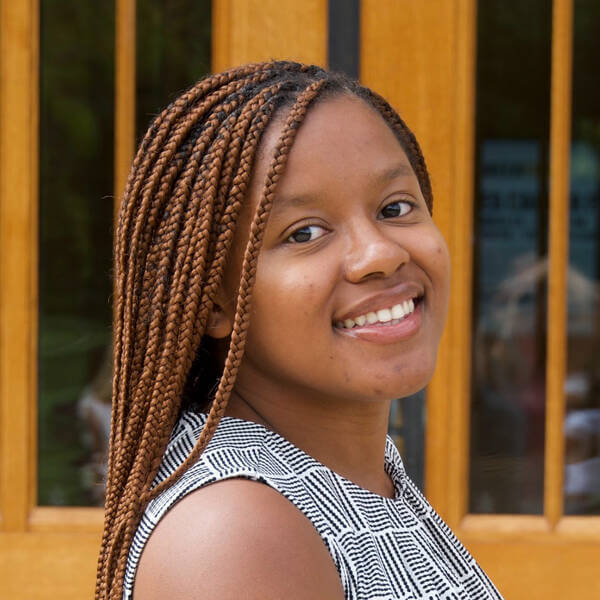Culture Shock
My parents are actually migrants, they are from the Democratic Republic of the Congo, which is in Africa. Yeah, so my parents are immigrants so I think that shapes my identity a lot because even though I was born here, and most people would perceive me to be like an African American, I was raised by Africans and in an African household, which does make my experience a little different from other people who do identify as African American. So because I am raised by Africans, I identify as Congolese American, so calling myself African American seems kind of wrong because many African Americans don't know where they're from, after transatlantic slave trade, and just the experience of being after slavery, they don't know where their family descended from, so it doesn't feel right because I know where I'm from. So it doesn't feel right to call myself African American but I also can't call myself African because I was born and raised here, so Congolese American is like a nice happy medium for me. So that's how I identify.
I was born in Chicago so I grew up in Rogers Park, which is in North Chicago. It's very, very North Chicago, like around the border between the suburbs where Evanston is. I lived there for most of my life, and then I went to school in uptown, which was about like 20 minutes away, I guess, and then I moved to the suburbs when I was around 13 which was a very hard experience for me because I went from like a school that was predominantly immigrants or children of immigrants and minority so like mostly Black and Asian to a school that was like completely white and I was like the only Black person in the room so that like people talk about culture shock when they go to Notre Dame, I had my culture shock when I was 13 and I moved to the suburbs.
So in high school when I was a junior there was a photo that circulated around, I think it was like my second semester or something like that. And in this photo it was two white girls who had like a spray tan, and then the caption was a very interesting caption. It said, I won't say the word out loud, but it said “we’re N-words now.” And this is when I was in high school. So this is after they got a spray tan. Maybe this is where I started hating spray tans. But anyway, this-they posted this on their private story on Snapchat and then someone on their private story like screenshotted it and then like rapid fire throughout my school like everyone was seeing this photo because everyone was reposting it. And I think like I mentioned before, like race, at least I don't think was very much it wasn't really like everyone kind of just ignored the topic in high school I feel, but after this happened, you can't really ignore the topic anymore. So I think that's when I became very aware of it when I was in high school, and I don't really like how my school handled it. Of course, there are laws in terms of like privacy of students, which I understand. But that's what I became very aware of in high school. And I feel like everyone knew what happened, but there wasn't really there was like great mental health resources to kind of like help students of color, Black students after the experience. I definitely had a mental decline after that happened.
But you have to remind yourself that no matter how many struggles you go through, or how many times you do take a mental decline there’s always an opportunity to go back up. There's always an opportunity to restore your mental health and take care of your mental health in a way that you can kind of go back to the top of the mountain if that makes sense. I think when I was here, there are many moments where I was like, why am I back here again? Why am I back down like at the bottom of the mountain? Like it's gonna be so hard for me to climb up again. But after a while you like…nobody lives a perfectly peaceful life, at the top of a mountain we always fall so it's not really… Like of course while you can think about different methods to stay up there, I think the most important thing is once you're down you’ve got to figure out and be able to always bring yourself back up.

Luzolo Matundu
Luzolo Matundu is a junior at Notre Dame studying Political Science and ACMS.